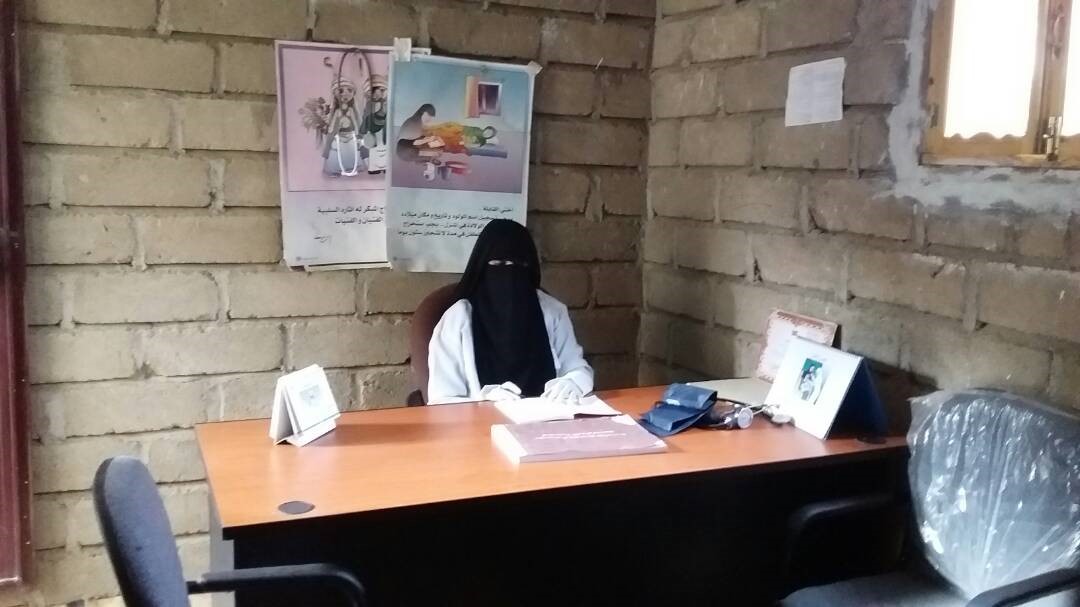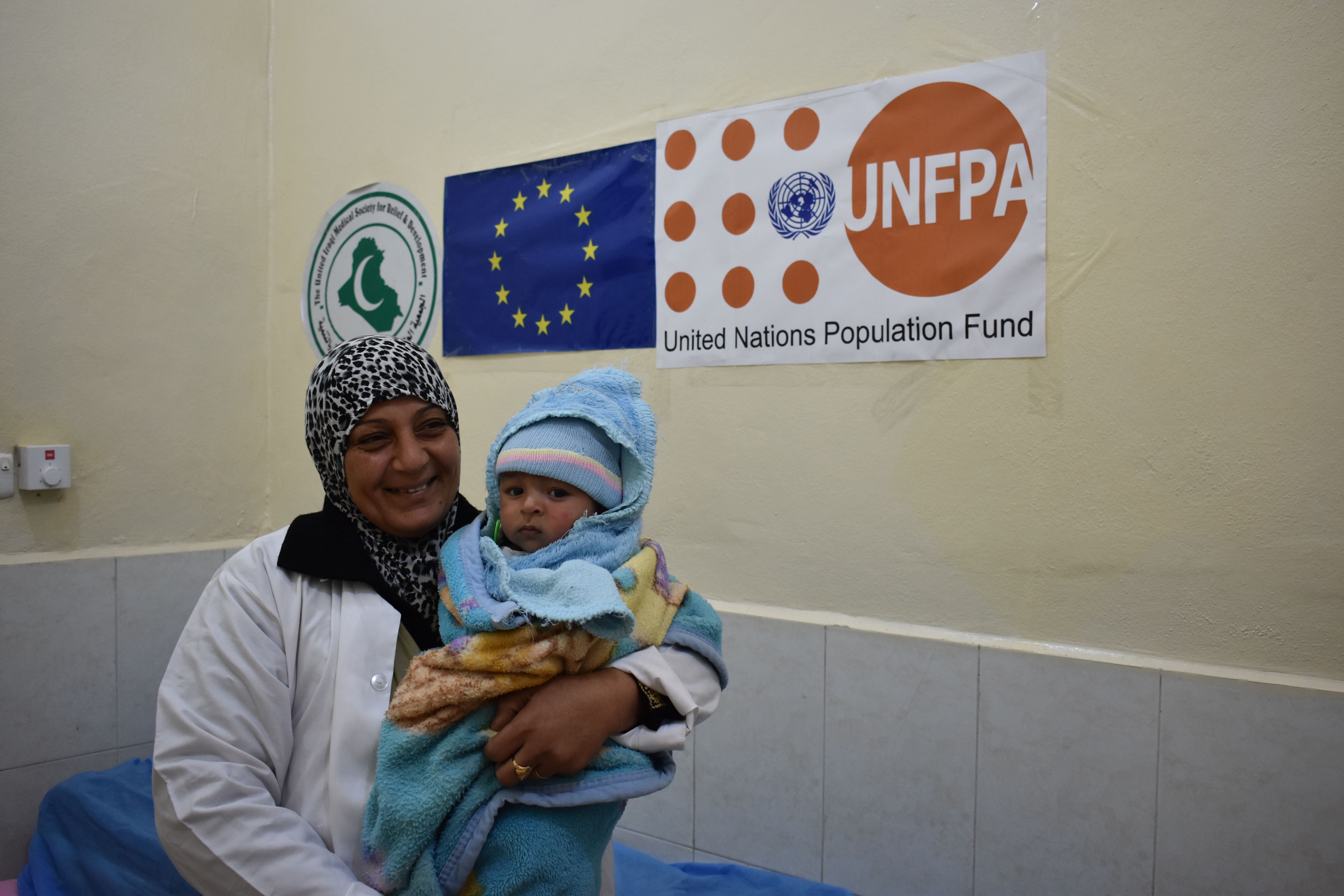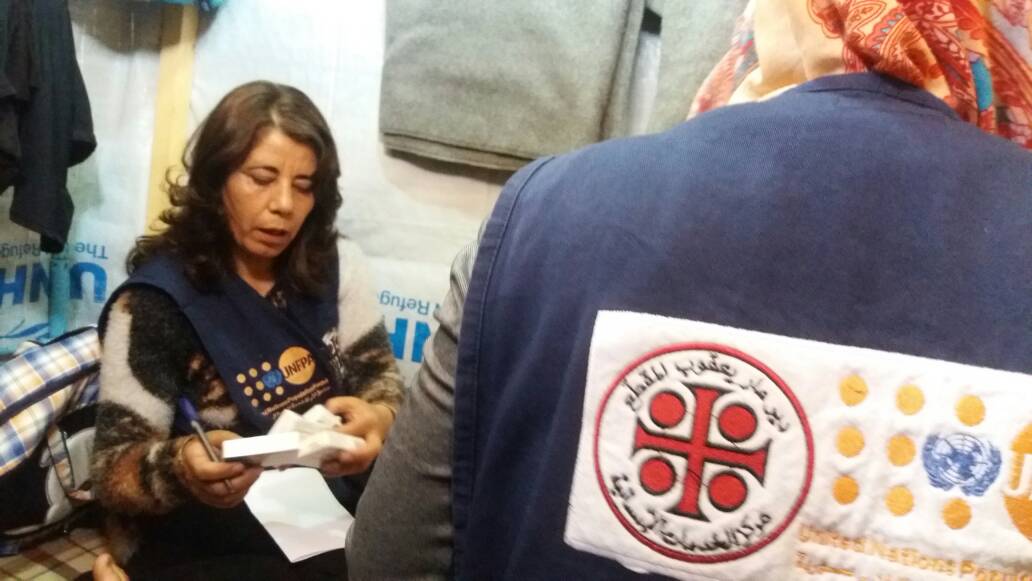UNFPA Arab States Regional Office – In a region plagued by some of the world’s most vicious conflicts and worst humanitarian crises, midwives have been providing quality reproductive health care, working on front lines to save lives, support and counsel women, especially where most health structures have ceased to function.
The International Day of the Midwife on May 5 is an opportunity to bring the critical, life-saving work of brave midwives into light.
This year, UNFPA is celebrating four outstanding midwives.

1. Sawsan Wehaan: I wish that women in Yemen understand that pregnancy is a condition, not an illness that could lead to death
In a country with one of the highest maternal mortality ratios in the Arab region, the lack of food, poor nutrition and the eroding healthcare, worsened by epidemics such as cholera and diphtheria, can mean an increase in premature or low-birth weight babies and severe postpartum bleeding. The process of giving birth thus becomes more life threatening.
“I wish that Yemeni women understand that pregnancy is a condition, not an illness, and that they will not die from it,” Sawan Wehaan, 22, a midwife from Hajjah, one of Yemen’s most impoverished and remote governorates, tells UNFPA.
Al-Jumhori Hospital where Sawsan works, is a referral hospital at the governorate level that includes a maternity ward, meaning that it is one of the largest hospitals in the governorate where the more serious cases are referred to and services are provided free of charge.
The number of patients coming in has increased rapidly in the last few months due to the influx of internally displaced persons from neighbouring cities who sought safe shelter in Hajja as fighting intensified. She and her colleagues receive about 70 cases every day.
“A majority of the cases are miscarriages, complicated deliveries requiring a caesarean operation. Some are normal deliveries or pregnant women, others are more general reproductive health cases,” she says. “We face major shortages in laboratory equipment to carry out lab tests and in other supplies, and must refer cases to other hospitals where supplies are available. I feel bad each time, because this delays the treatment for the patient.”
There are an estimated three million women and girls of childbearing age who need support across Yemen. Rising food shortages have left an estimated 1.1 million pregnant women malnourished, and threaten the lives of 75,000 women who are likely to develop complications during childbirth, including risks of stunted growth of their newborns.
Since the escalation of the crisis, UNFPA has supported 120 previously unemployed midwives to set up homebased clinics across the country. They play a critical role in saving the lives of mothers at a time when only one third of the reproductive health facilities are functioning and many families lack the means to reach the nearest hospital.
2. Muna Suleiman, Somalia: social norms can sometimes prevent women from accepting lifesaving services
Somali midwives work within political, social and economic challenges that affect the nature, focus, direction and quality of their practice. The Somali environment presents obstacles that hinder effective and high quality midwifery care. Some are related to social-cultural, political and economic issues which greatly impact on the health of women and children.
For Muna who attends to 30 women per day and some 180 women and newborn babies every week, social norms sometimes add to the challenges she already faces in a country that has one of the world’s highest maternal mortality ratios.
One of the many difficult situations she responded to was the case of a mother who had delivered at home and had post-partum hemorrhage during one of her home visits. Muna always encourages pregnant mothers to seek care at the health facilities.
“The mother was in shock while I started to respond to her case, but I had to quickly rush her to the health facility for further comprehensive treatment. It was very challenging when her husband and relatives refused that I manually remove her placenta. They wanted to give her traditional treatment at home which was not realistic.”
Muna tried her best to make them understand the importance and safety of the method using her midwifery skills. “I was finally able to persuade them to me to undertake the procedure.”
Muna graduated from Mogadishu Midwifery School supported by UNFPA in 2015. She works at the Health Centre as a midwife.
UNFPA has been working to train midwives in Somalia since 2008, and is currently supporting trainings in 15 schools across the country. While it is difficult to track the exact number of midwives active in the country, it estimates there are now over 1,000 trained midwives deployed in villages and urban areas nationwide, making a significant impact.
“I get daily appreciation from the community especially when I meet mothers and their newborns in the health facility for postnatal care. They really acknowledge services I provided during their pregnancy and child birth,” she added.

3. Om Qassem, Iraq: I felt as if my world falling apart when ISIL seized and burned down the hospital where I have been working for 15 years.
Om Qassem had been working as a midwife in Anbar province in Iraq since 2003 when the Islamic State in Iraq and the Lebant (ISIL) swept across large parts of her country in mid-2014, turning her and many women’s lives into a nightmare, especially when the Islamist group tried to recruit her.
“ISIL constantly threatened me, my husband, and my family, as well as other doctors and nurses. We were working under fear; I was emotionally devastated but I had to put on a brave face for my patients who are bringing life in such a challenging environment.”
The group had turned the maternity ward into an emergency room for its fighters and gave the medical staff a small room for deliveries, forcing women to pay 21,000 ISIL pounds (approximately US$ 40) while childbirth was free in the past.
“One woman walked in without money, she was in a critical condition and needed to go into the delivery room immediately. The head midwife that ISIL had appointed refused to let her in, so I threatened to quit if we did not admit the woman. I knew that I was risking my life by such action, but the woman and her baby would have died if I had not spoken up.”
ISIL fighters left took all the hospital’s equipment with them when they left to Raqqa, and burnt down the building.
“I felt as if my world had just fallen apart. This hospital was my home; I have been working here for 15 years,” she remembers.
“The biggest challenge is to get these women through the delivery and promise them a beautiful healthy baby. The main challenge is to meet the influx of deliveries and the potential complications of a birth,” she said.
UNFPA has been supporting Al-Qaim hospital since early December 2017, which received a fully-equipped Mobile Delivery Unit (MDU). It also directly contributed financial and logistical support to help pay incentives to the reproductive health team of one gynecology specialist, three medical assistants, three midwives and support staff. Moreover, UNFPA covered the cost of generators, waste management, and MDU maintenance.
UNFPA also made sure that an established referral system (ambulances) are enhanced for the transfer of complicated cases in need of surgery to more specialized centres.
From 1 January to 31 March 2018, UNFPA- supported medical team in Al Qaim hospital assisted in 378 normal deliveries.
UNFPA is currently in discussions with the Government of Iraq on the implementation of training programmes for midwives across the country, including specifying the role of midwives, pre-service trainings in nursing schools, and in-service trainings.

4. Ryam, Syria: I feel appreciated when I see the fruit of my work.
Ryam used to work with the Monastery of Saint James (MSJM), a local NGO and UNFPA partner. To respond to the needs of women displaced from East Ghouta, she moved to Dwier shelter where many people have taken refuge, where the transfer of patients to hospitals or specialized clinics outside the shelter is difficult and can only happen through the Syrian Arab Red Crescent (SARC) or the Directorate of Health.
She says that she sees from 25 to 40 cases every day, noting that there is an increasing number of pregnant women, which she thinks is due to high mortality rates among men and children. “Women feel the urge to make more children in order to make up their family losses,” she explained.
Around 13.1 million people inside Syria need immediate assistance, including 4.2 million women and girls of childbearing age, half a million of whom are pregnant. In addition, some 1.5 million women and girls live in areas with limited aid available, and about 359,000 have recently fled their homes to escape violence in Idlib, Eastern Ghouta and Afrin.
UNFPA is working with health professionals like Ryam to empower midwives to provide this life-saving care. “I feel appreciated when I see the fruit of my work reflected as comfort and happiness in the lives of women," Ryam said.
UNFPA has also developed a strategy to further strengthen the skills of midwives in northern Syria.


